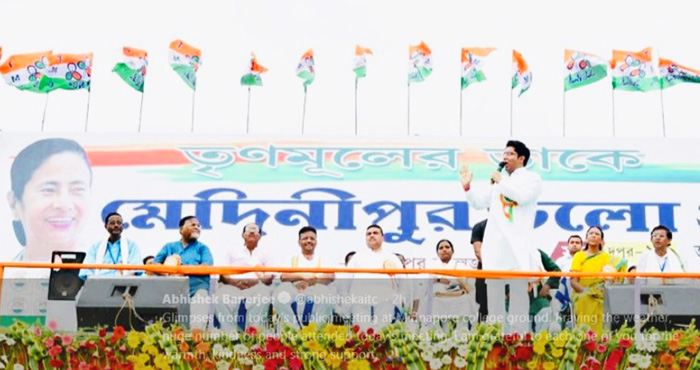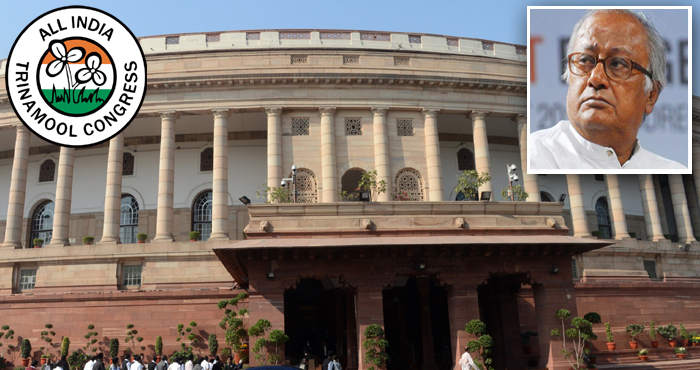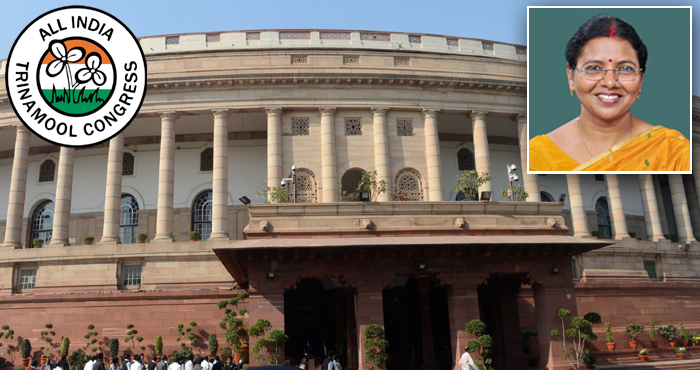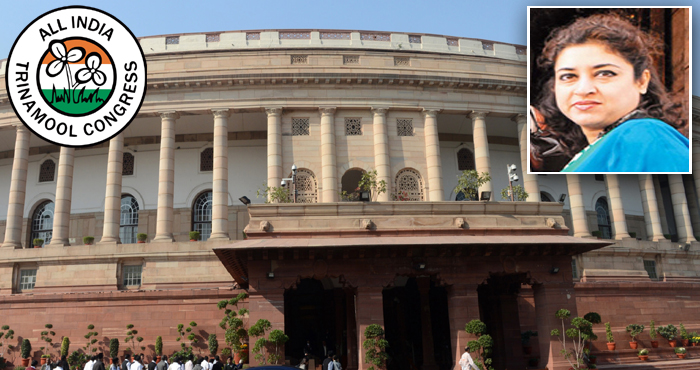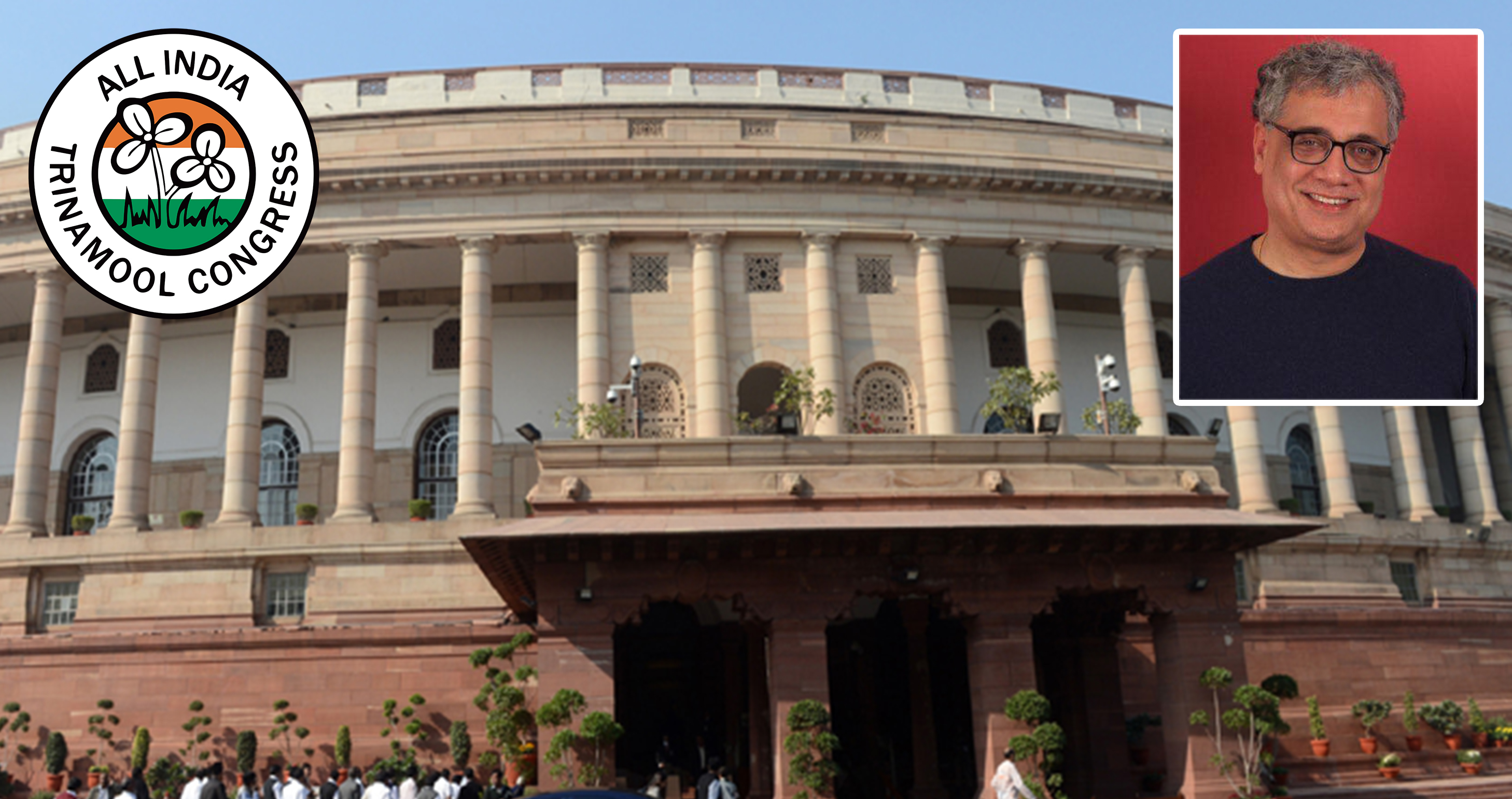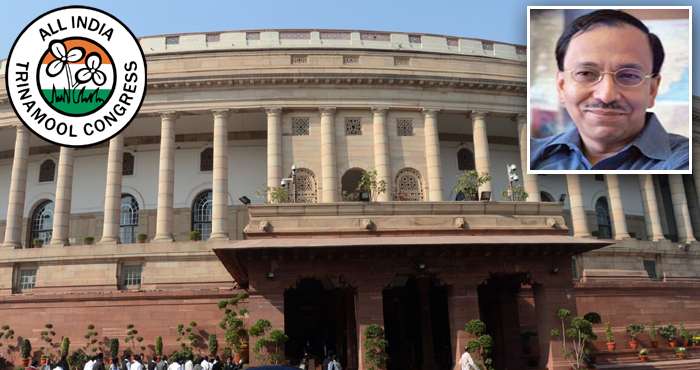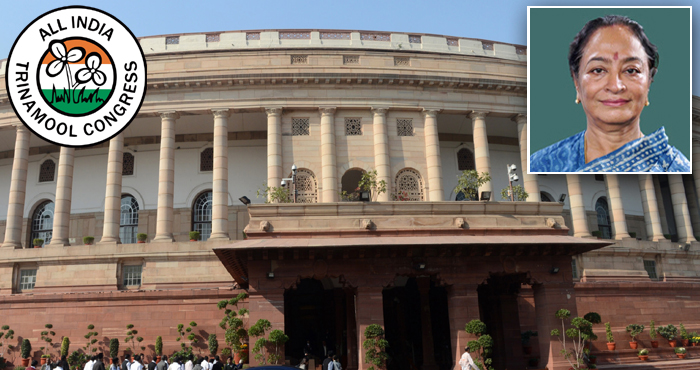National President of Trinamool Youth Congress and MP Abhishek Banerjee today took on the BJP at a rally in Medinipur. He also countered the Prime Minister’s ‘syndicate’ allegations against the party and said Trinamool is people’s syndicate, and that the people will dislodge the BJP from power in 2019.
Highlights of Abhishek Banerjee’s speech:
- We are not a rich party like BJP. We do not have enough financial resources. We could not erect shades at this rally venue, like the BJP did by selling the country for crores of money. Those who cannot even erect a pandal properly are dreaming of winning in Bengal. The soil of Medinipur is one of struggle and fighting. This soil does not tolerate lies. People of Medinipur have not learnt to bow down.
- Those who have come to this rally, braving the downpour, have come here not to listen to political speeches, but with the resolve to oust BJP from Delhi in 2019.
- The Prime Minister addressed a rally here in this venue on July 16. It was titled ‘Krishi Kalyan Samabesh’. But one could hardly spot a farmer that day. They brought people from UP, Bihar, Odisha, and 10 districts. We have the details.
- BJP does not understand the pain of farmers. The highest number of farmer suicides occurs in Maharashtra and Madhya Pradesh. If the Prime Minister really cares for them, he should organise a farmers’ rally in these States. More than 12,000 farmers have committed suicide. Seven farmers were killed, in the same way like Nandigram, in Madhya Pradesh. Nearly 80 children died in a hospital in Gorakhpur due to lack of oxygen. More than 120 people died due to demonetisation, while waiting in queues.
- The Prime Minister did not utter a word on development. He only uttered lies after lies. There is autocracy going on in the country. Everyday names of stations are being changed, Red Fort is being given away to private entities, Taj Mahal is being insulted. Farmer suicides are increasing. Yet, the PM and BJP President are giving bhashan.
- The Prime Minister said, Trinamool is running a syndicate. We are a syndicate of the people. Our syndicate ended the 34-year old misrule of the Left. The syndicate brought peace of Jangalmahal and Darjeeling. In the days to come, the syndicate will dislodge BJP from power.
- We are ready to give our lives but we will not these people dupe the people of Bengal. We will not allow communal tension in the State. We believe in Hinduism of Swami Vivekananda not that of Yogi Adityanath. Our Hinduism does not talk of divisive politics, destruction or violence. We also have devotees of Ram in our party, but unlike their Ram Bhakts, we do not organized rallies with arms. Religion for Trinamool is a unifying force, not divisive force.
- I want to ask the BJP what they have done for Hindus? They started a project to clean the Ganga, and allocated crores of rupees, but they could not even clean a pond. They only use Hinduism for politics.
- We are not atheists ike the CPI(M). We do not indulge in politics over religion like the BJP. They allege that Mamata Banerjee indulges in Muslim appeasement. I want to tell them, Mamata Banerjee has worked for the development of both Furfura Sharif and Dakshineshwar. She has brought a tide of development to Gangasagar as well as Tarapith.
- The Prime Minister said Durga Puja is under threat. He does not know Mamata Banerjee has started the Bisarjan Carnival at Red Road. My advice to the BJP is to first take care of the pandal and then think of Bengal. In 2018, the pandal broke. In 2019, the government will break.
- Our leader has fixed our target from the July 21 rally stage. Her message was 42 out of 42 in 2019, BJP finish. This should be our motto. We did not concede ground to the CPI(M), neither will we concede ground to the BJP. Let us resolve to protect the unity, culture, harmony of Bengal with our lives. Let us rid Bengal of the dirt called BJP, in a democratic way.
- Let them fight us politically. Those who think they can win in Bengal by communally polarising the people, I want to remind them that people of Bengal cannot be brought for money. This is our Bengal, our pride.
- They say they will win 22 seats in Bengal. We have to ensure that they don’t even win in 22 booths. A secular government will be formed in India in the coming days. That government will be for the common people, the farmers. That government will work for the progress in every sphere.
- The only clash in Bengal will be one between 10 crore people of Bengal versus the BJP, not Hindu-Muslim clash.
- Today is the death anniversary of Mahasweta Devi. She had a deep connection to this district. My deepest respects to her.

